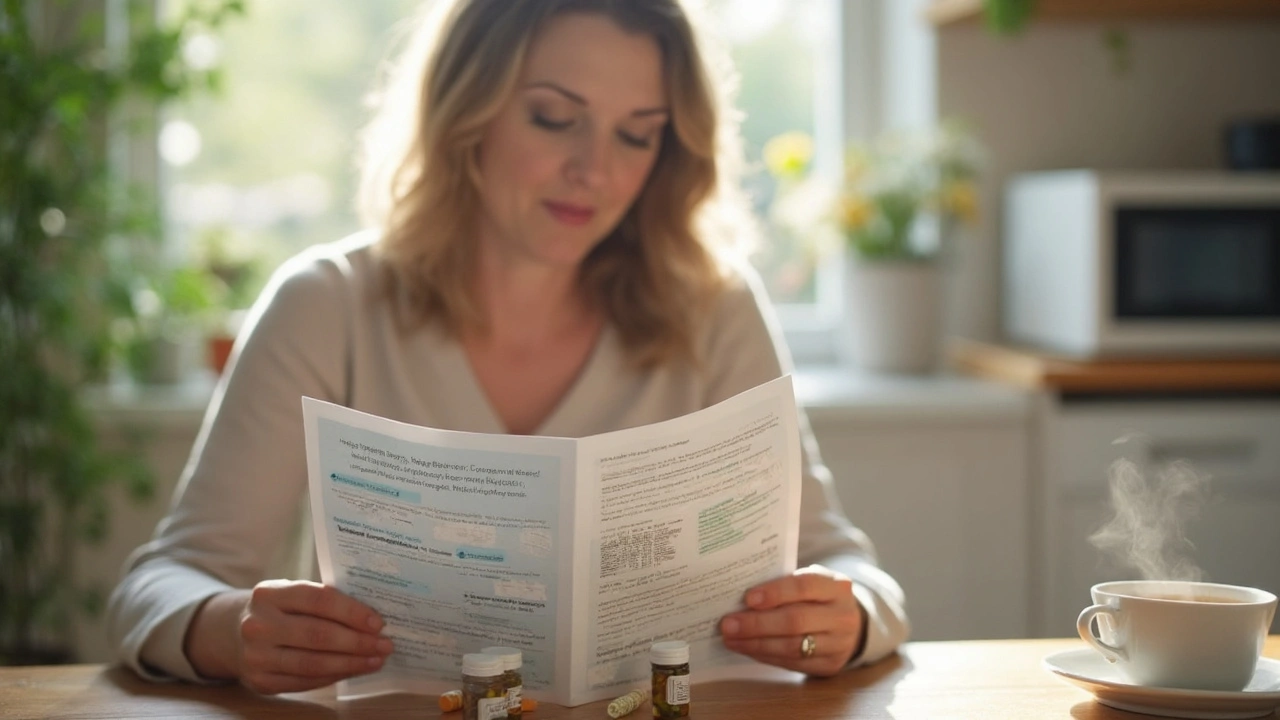If you’ve tried levothyroxine and still feel off, you might have heard about natural desiccated thyroid, or NDT. It’s a medication made from dried pig thyroid glands and contains both T4 and T3 hormones – the two main players your body needs to keep metabolism steady. Because it mimics the hormone mix our own thyroid makes, many people say it feels more “natural” than synthetic pills.
Synthetic thyroid meds usually give you just T4, trusting your body to turn some of that into T3. With NDT you get a fixed amount of both hormones right away. That can help folks who don’t convert T4 to T3 efficiently. The trade‑off is less flexibility: you can’t fine‑tune the T4/T3 ratio as easily as with separate pills. Most doctors start patients on a low dose and adjust based on symptoms and blood tests.
Typical starting doses range from 30 mg to 60 mg of NDT per day, split into two doses for steady levels. Jumping straight to a high dose often leads to jittery feelings or heart palpitations, so start low and move up slowly. Keep track of how you feel – energy, temperature, sleep, and mood are good daily clues. Pair that with quarterly blood work (TSH, Free T4, Free T3) to see if the numbers line up with your symptoms.
People who benefit most from NDT often report persistent fatigue or weight gain despite being on synthetic hormone for years. If you fall into that group, a trial of NDT under doctor supervision can be worth it. Remember, because NDT is derived from animal tissue, those with pork allergies should avoid it.
Side effects are usually mild but can include increased heart rate, anxiety, or insomnia if the dose is too high. If you notice these, cut back a little and retest in a few weeks. Some patients also experience stomach upset; taking NDT with food can help.
Where to get NDT matters. Look for reputable pharmacies that require a prescription and offer batch testing for potency. Cheap overseas sources may save money but risk inconsistent hormone levels, which can mess up your labs and symptoms.
Bottom line: natural desiccated thyroid offers a balanced T4/T3 mix that many find smoother than synthetic alone. Success depends on starting low, monitoring closely, and working with a clinician who understands the nuances. If you’re tired of feeling stuck on levothyroxine, NDT might be the reset your thyroid needs.

This in-depth article takes a close look at natural desiccated thyroid (NDT) and levothyroxine, two major treatments for hypothyroidism. It breaks down dosing differences, reviews real-life satisfaction among patients, and discusses who's most likely to benefit from each type. If you're wondering which thyroid medication may fit your needs—or you're simply curious about how these options stack up—read on for a straightforward, fact-packed comparison.
As a blogger, I've come across some interesting information about the connection between atrophic gastritis and gastric cancer. Atrophic gastritis is a chronic inflammation of the stomach lining, which leads to the loss of gastric glandular cells and their eventual replacement by intestinal and fibrous tissues. This condition is considered a significant risk factor for gastric cancer, as it causes a gradual decline in gastric acid production and an increase in the production of gastrin, a hormone that promotes cell growth. With the loss of normal stomach function, the risk of developing gastric cancer significantly increases, especially in cases of autoimmune or H. pylori-induced gastritis. It's crucial to monitor and manage atrophic gastritis symptoms to reduce the risk of gastric cancer and maintain overall digestive health.
Learn how to identify legitimate generic drugs at the pharmacy by checking labels, verifying pharmacies, spotting counterfeit signs, and using lot numbers to confirm safety. Save money without risking your health.
A side‑by‑side look at Fulvicin (griseofulvin) versus terbinafine, itraconazole, and fluconazole, covering how they work, costs, side effects, and how to pick the best option.
Many gastrointestinal medications fail to work because of how the gut absorbs (or blocks) drugs. Learn why food, disease, and formulation affect effectiveness-and what you can do about it.
Inflammation doesn’t always need a prescription pad and a bottle of steroids. This article dives deep into well-researched natural anti-inflammatories like curcumin, boswellia, omega-3s, and other botanicals. Learn how these alternatives function, their proven benefits, and practical tips for getting the most out of them—without the side effects of pharmaceuticals. Discover how you can harness the power of nature to tame inflammation and support your health.